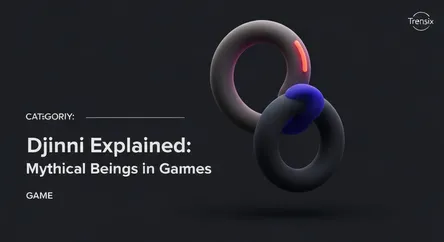Game
Djinni Explained: Mythical Beings in Games

Discover the lore of Djinni, powerful elemental genies from mythology. Explore their role in games like The Witcher and their impact on game worlds.
What is it?
A djinni, or genie, is a powerful elemental spirit originating from pre-Islamic mythology. Unlike the often-benevolent genies of pop culture, game lore typically portrays them as immensely powerful, chaotic, and dangerous beings. They are often bound to an object, such as a lamp or a seal, and can be compelled to grant wishes to their master. In many fantasy settings, like The Witcher, Djinni are considered elementals of air, possessing incredible magical abilities that can alter reality. They are not simply servants but intelligent, willful entities with their own inscrutable motives.
Why is it trending?
Djinni remain a popular trope in fantasy due to their narrative potential. Their modern relevance in gaming is heavily influenced by franchises like The Witcher. The iconic quest "The Last Wish" explores the complex and dangerous relationship between Geralt, Yennefer, and a powerful djinni, highlighting the unpredictable nature of wishes. This portrayal of Djinni as primal forces rather than simple wish-granters makes them compelling plot devices, offering a source of immense power that always comes at a steep, often unforeseen, price for the characters involved.
How does it affect people?
In game worlds, an encounter with a djinni is a life-altering event. Their ability to grant wishes introduces themes of desire, consequence, and the corruption of power. For players, this translates into high-stakes quests with significant moral choices and narrative impact. A djinni can be a formidable boss battle, a source of legendary magical items, or the catalyst for a world-changing event. They challenge players and characters alike to consider the true cost of their deepest desires, making them a memorable and impactful element of game lore.